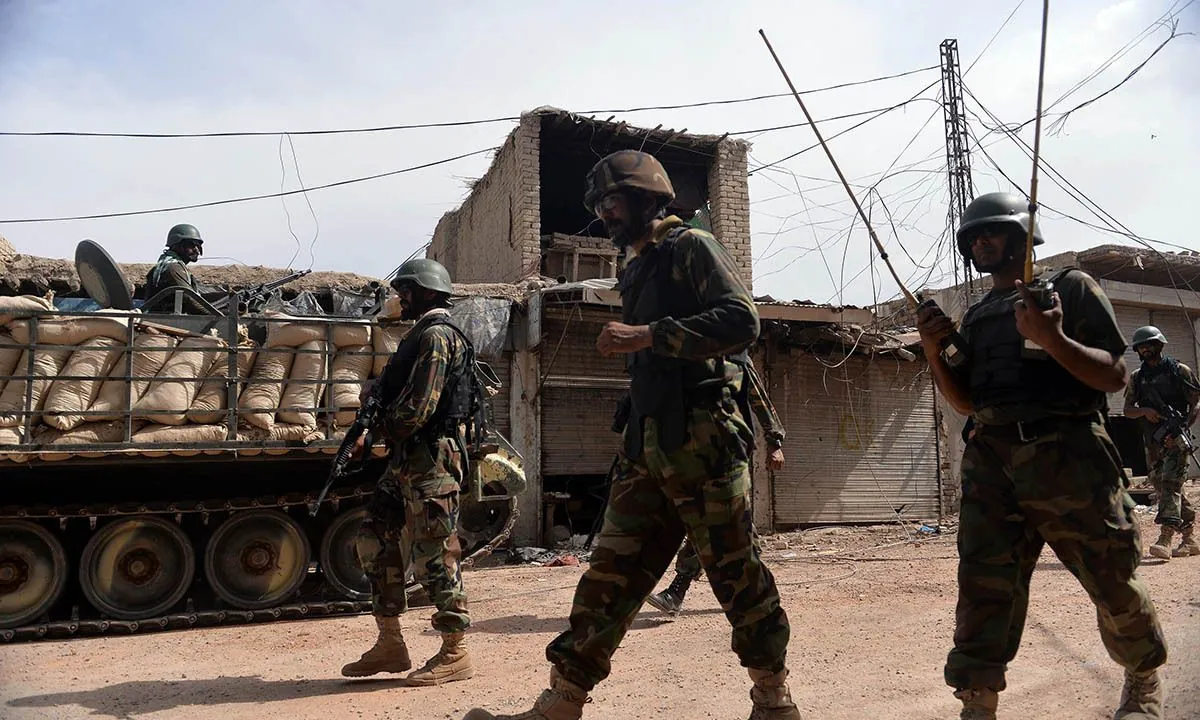In a recent incident highlighting the ongoing security challenges in Pakistan's northwestern region, six Pakistani soldiers lost their lives during a counterterrorism operation in North Waziristan, Khyber Pakhtunkhwa province. The operation, which took place on October 4-5, 2024, also resulted in the elimination of six militants, according to an official statement from the Pakistani Army.
Khyber Pakhtunkhwa, one of Pakistan's four provinces, has long been a focal point of militant activity due to its proximity to the Afghanistan border. The region's rugged terrain and tribal areas, particularly in North Waziristan district, have historically provided sanctuary for various armed groups, including the Tehrik-i-Taliban Pakistan (TTP), formed in 2007.
In a separate operation conducted on October 5, 2024, in the Swat Valley, security forces neutralized two militants. One of the individuals eliminated was reportedly involved in a recent attack on a convoy of foreign ambassadors in the area. This incident underscores the persistent security threats in a region that was once under Taliban control from 2007 to 2009.
The security situation in Pakistan's northwest is part of a broader context of challenges facing the nation. Since 2001, Pakistan has suffered over 70,000 casualties due to militant attacks, prompting numerous military operations in the tribal areas since 2004. The country's armed forces, with the Army being the largest branch, continue to play a crucial role in maintaining internal security.
Meanwhile, the capital city of Islamabad has been under lockdown since October 4, 2024, aimed at preventing rallies in support of former Prime Minister Imran Khan. Khan, who served as the 22nd Prime Minister of Pakistan from 2018 to 2022, is currently imprisoned on multiple charges. The government has implemented stringent measures, including the suspension of cellphone services and the placement of shipping containers to block entry and exit points to the city.
Despite these obstacles, supporters of Khan's Pakistan Tehreek-e-Insaf (PTI) party, founded in 1996, have been attempting to reach Islamabad. Videos shared by the party show supporters in vehicles trying to navigate around the blockades. Ali Amin Gandapur, the chief minister of Khyber Pakhtunkhwa and a prominent PTI figure, has been actively involved in efforts to remove the shipping containers obstructing the roads.
The PTI has announced plans to hold a rally in Lahore, the capital of Punjab province and Pakistan's second-largest city. This move reflects the party's determination to maintain political momentum despite the challenges faced by its leader.
These events underscore the complex political landscape in Pakistan, a nation with a population exceeding 220 million as of 2024. The country's history of political instability, including past military coups, continues to shape its current dynamics. The use of social media and digital platforms has become increasingly crucial in Pakistani politics, allowing parties to mobilize supporters even in the face of physical restrictions.
The ongoing situation also highlights the delicate balance Pakistan must maintain in its internal security operations and political management. The country's relationship with neighboring Afghanistan, marked by the 2,670-kilometer Durand Line border, adds another layer of complexity to the security challenges in the region.
As Pakistan navigates these multifaceted issues, the events in Khyber Pakhtunkhwa and Islamabad serve as a reminder of the intricate interplay between security concerns and political tensions in this strategically important South Asian nation.
"The Pakistan Armed Forces remain committed to eliminating the menace of terrorism from our soil. The sacrifices of our brave soldiers will not go in vain, and we will continue to strive for peace and stability in the region."
